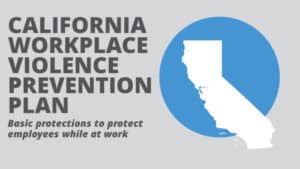Written By Chris Dolan and Kimberly Levy
This week’s question comes from Shelly D. from San Francisco, who writes: I have lived in San Francisco all my life. I have noticed more and more people in our community are in crisis on the streets. Often with mental or substance use disorder, they are left to fend for themselves without food, warm clothing, or adequate medical care. What can California do to help our fellow Californians in need?
Dear Shelly,
Great question. A novel plan to address these issues is in the works. Earlier this year, the California State Legislature enacted SB 1338, the Community Assistance, Recovery, and Empowerment Act (CARE Act) signed into law by Governor Newsom in September 2022. The law created CARE Court, a new court-based framework established to provide care and support for Californians with untreated mental health and substance use disorders. Those disorders often lead to homelessness, incarceration, or even death without proper care and support. CARE Courts intend to provide court-ordered, community-based services for those underserved populations without infringing on people’s rights.
What services will be provided by CARE Court?
CARE provides “trauma-informed” “clinically appropriate, community-based … services and supports that are culturally and linguistically competent.” This support includes counseling, stabilizing medication, social services, housing assistance, and counsel for all court appearances for a diverse population with diverse needs.
Who will be eligible for CARE?
CARE focuses on assisting people with those with severe mental disorder or substance use disorder. There are strict requirements to qualify for the program. The following criteria must be met:
- person must be at least 18 years of age;
- person must be currently experiencing severe mental illness or diagnosis of substance use disorder;
- person must be unstable in ongoing voluntary treatment;
- person either is unlikely to survive in the community without supervision and the person’s condition is substantially OR requires supports to prevent relapse or deterioration of their condition likely to result in serious harm;
- the CARE program would be the least restrictive method to ensure person’s recovery/stability; and
- it is likely the person will benefit from participation in the CARE program.
How will CARE Court work?
A referral to CARE Court starts with an individual seeking treatment or their representative filing a petition under penalty of perjury. The petition for CARE Court services will present facts demonstrating the petitioner meets the criteria for participation. The Court will review the petition, and if it appears to meet the criteria, the county will investigate and provide a report on whether CARE services are appropriate.
The Court will dismiss the case if an individual voluntarily agrees to services. A CARE agreement will be entered into with Court follow-up. The Court will hold a hearing if the individual does not voluntarily agree to services but meets the CARE criteria. They will appoint an attorney for those who do not voluntarily agree to participate in CARE services. The Court will determine whether a CARE plan is appropriate or whether they should dismiss the case. If the Court imposes a CARE plan, they may order services and supports such as treatment, medication, housing assistance, counseling, etc.
To remain accountable, the Court, CARE participant, counsel, and behavioral health professionals will have status hearings every 60 days for one year. After one year, a participant will be able to graduate or continue services for another year based on need.
What if CARE Court participants fail to comply with their plan?
A non-compliant participant will be subject to additional court hearings, which may result in termination from the proceedings. Still, the individual will remain eligible for some of their ordered services. The Court may also use its power to ensure an individual’s safety in the program.
What if the government does not provide the ordered services and supports?
Suppose the Court finds that a local government entity substantially failed to comply with the Court’s order for services or support. In that case, the presiding judge may issue an order imposing a fine of $1,000 per day that the government fails to comply, not to exceed $25,000. Fines will be collected into a CARE fund to pay back into the program.
When will CARE be implemented?
Pilot program CARE Courts will be established in seven counties in California by October 1, 2023. Pilot counties include San Francisco, San Diego, Orange, Riverside, Stanislaus, Tuolumne, and Glenn. The remaining 51 California counties must implement CARE Courts by December 2024.
The CARE program requires creating significant new infrastructure, and it presents a glimmer of hope that those in need of assistance will have meaningful access to supports and services. That meaningful access can put their lives on a safer, healthier trajectory.










